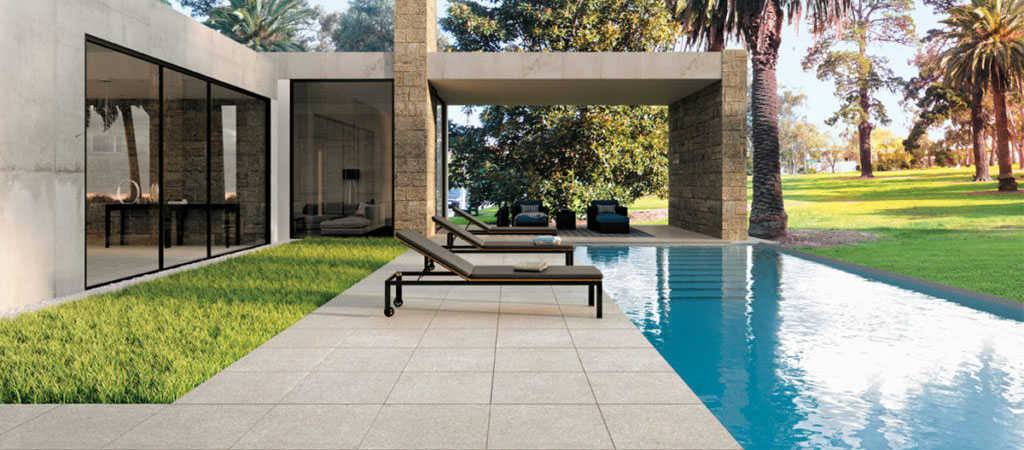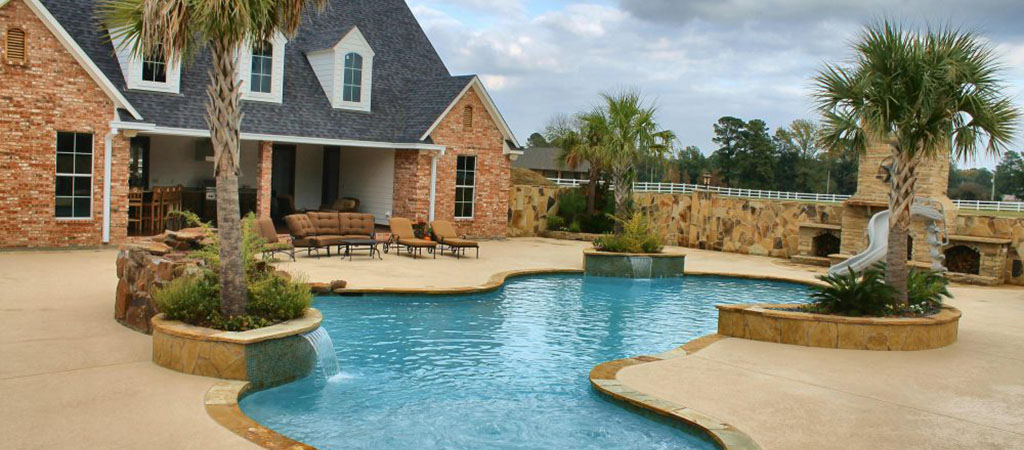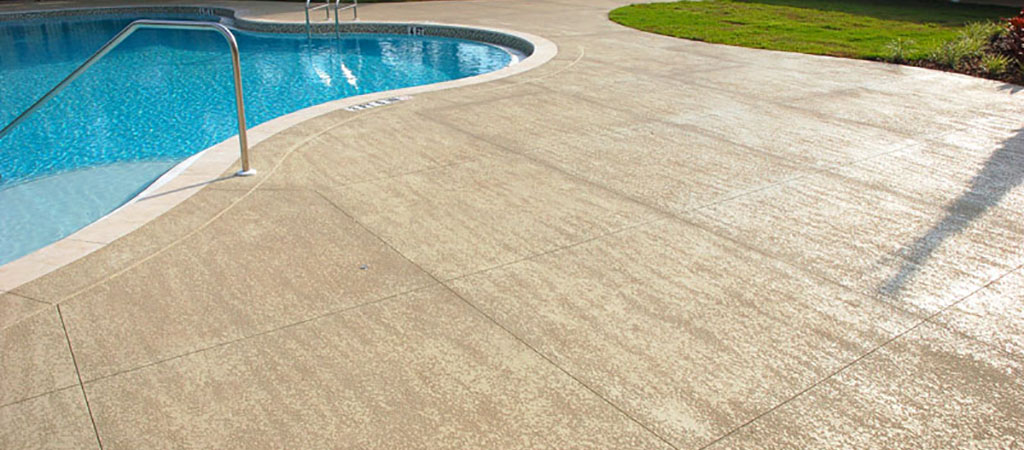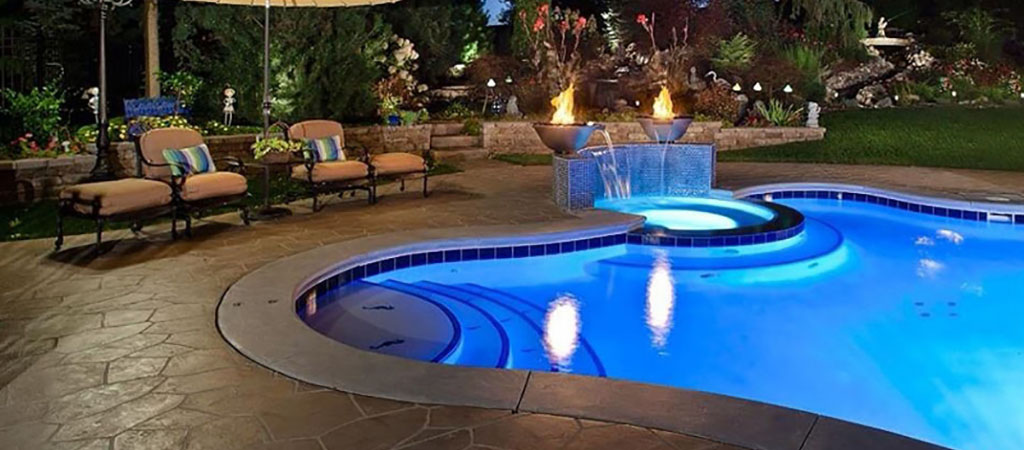Pool Deck Resurfacing
Pool decks can add immense value and aesthetic appeal to any residential or commercial property. However, over time, even the most well-maintained pool decks can show signs of wear and tear, such as cracking, fading, and discoloration. This is where pool deck resurfacing services come into play. Columbus Concrete Contracting offers a wide range of pool deck resurfacing services designed to restore the beauty and functionality of your pool area. Their team of experienced professionals can work with various materials, including concrete, pavers, and natural stone, to create a customized solution that fits your needs and budget.
Industries that Utilize Pool Deck Resurfacing

Hospitality Industry
In the hospitality industry, such as hotels, resorts, and other leisure facilities, pool deck resurfacing plays a vital role in attracting guests and creating a welcoming environment. These businesses rely heavily on their outdoor pool areas to provide guests with a luxurious and relaxing experience. However, if the pool deck is cracked, faded, or in poor condition, it can detract from the overall ambiance and impact guest satisfaction. With pool deck resurfacing, businesses in the hospitality industry can maintain an attractive pool area that will impress guests and keep them coming back. For example, using high-quality materials like stamped concrete or natural stone can provide a stylish and durable solution that can withstand heavy foot traffic and weather conditions. Additionally, resurfacing can be done quickly and efficiently, minimizing the downtime of the pool area and allowing guests to enjoy it as soon as possible.

Residential Industry
In the residential industry, pool deck resurfacing is a popular option for homeowners looking to increase their property’s value and curb appeal. Homeowners can choose from a variety of materials, patterns, and colors to create a custom look that complements their home’s architecture and personal style. Additionally, pool deck resurfacing can be an excellent alternative to costly replacements or repairs, providing a more affordable option for those on a budget. By resurfacing their pool decks, homeowners can also create a safer environment for their families and guests. For example, applying a non-slip surface can reduce the risk of slips and falls, especially when the deck is wet. Furthermore, resurfacing can cover up unsightly cracks and stains, making the area look brand new and increasing the overall enjoyment of the pool.

Sports Industry
In sports, pool deck resurfacing is crucial for maintaining safe and functional aquatic facilities. High-traffic areas like public pools and water parks require regular maintenance to ensure the safety of swimmers and visitors. Pool deck resurfacing can be an essential part of this maintenance process, as it can help prevent injuries, reduce maintenance costs, and extend the life of the pool deck. Sports facilities can benefit from resurfacing their pool decks with materials designed for high-traffic areas. For instance, concrete coatings that are slip-resistant and durable can be a great option for these facilities. Additionally, pool deck resurfacing can allow for the installation of new features, like water slides or diving boards, without compromising the safety or functionality of the pool area. Overall, pool deck resurfacing is a valuable investment for the sports industry that can help ensure the safety and satisfaction of visitors.
Learn the Benefits of Pool Deck Resurfacing
- Restores the beauty and functionality of pool decks
- Increases the value and curb appeal of residential and commercial properties
- Provides a safer environment for swimmers and visitors
- Covers up cracks and stains, making the area look brand new
- Reduces the risk of slips and falls by applying non-slip surfaces
- Offers a more affordable option compared to costly replacements or repairs
- Provides a customized look that complements the property’s architecture and personal style
- Extends the lifespan of pool decks, reducing maintenance costs in the long run
- Provides a quicker turnaround time compared to full replacements
- Allows for the installation of new features without compromising safety or functionality
- Can be done with a variety of materials, patterns, and colors to suit individual preferences


Concrete Coatings
Concrete coatings are a popular option for enhancing concrete surfaces’ durability, aesthetics, and functionality. They can be applied to floors, walls, and even outdoor areas like pool decks and patios. Concrete coatings come in various formulations, including epoxy, polyurethane, and acrylic, each with its unique properties and benefits. Epoxy coatings are known for their superior strength and durability, ideal for high-traffic areas like garages and industrial facilities. Polyurethane coatings offer excellent UV rays and chemical resistance making them a perfect option for outdoor areas.

Concrete Sealing
Concrete sealing is a process that involves applying a protective coating to the surface of the concrete to prevent water, chemicals, and other contaminants from penetrating and damaging the material. Concrete sealing can be done on a variety of surfaces, including floors, walls, and outdoor areas like driveways and patios. Sealing concrete surfaces can provide many benefits, such as increased durability, easier maintenance, and improved appearance. For example, a sealed concrete floor can resist stains and damage from foot traffic, making it easier to clean and maintain.
The Basics of Pool Deck Resurfacing

Maintenance and Care for Pool Decks After Resurfacing

The Pool Deck Resurfacing Process

